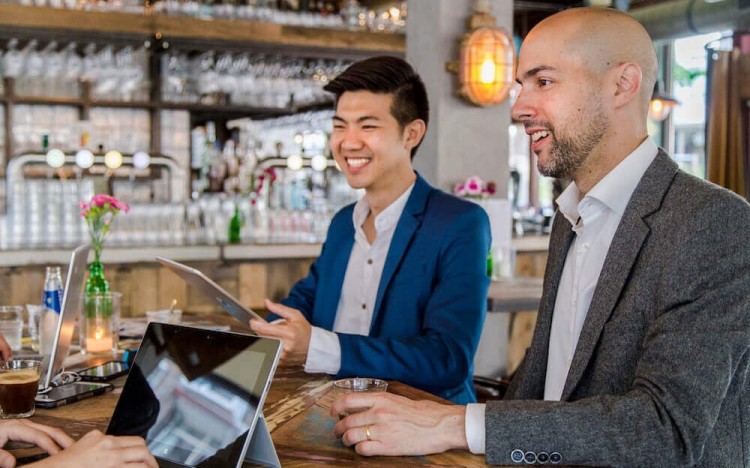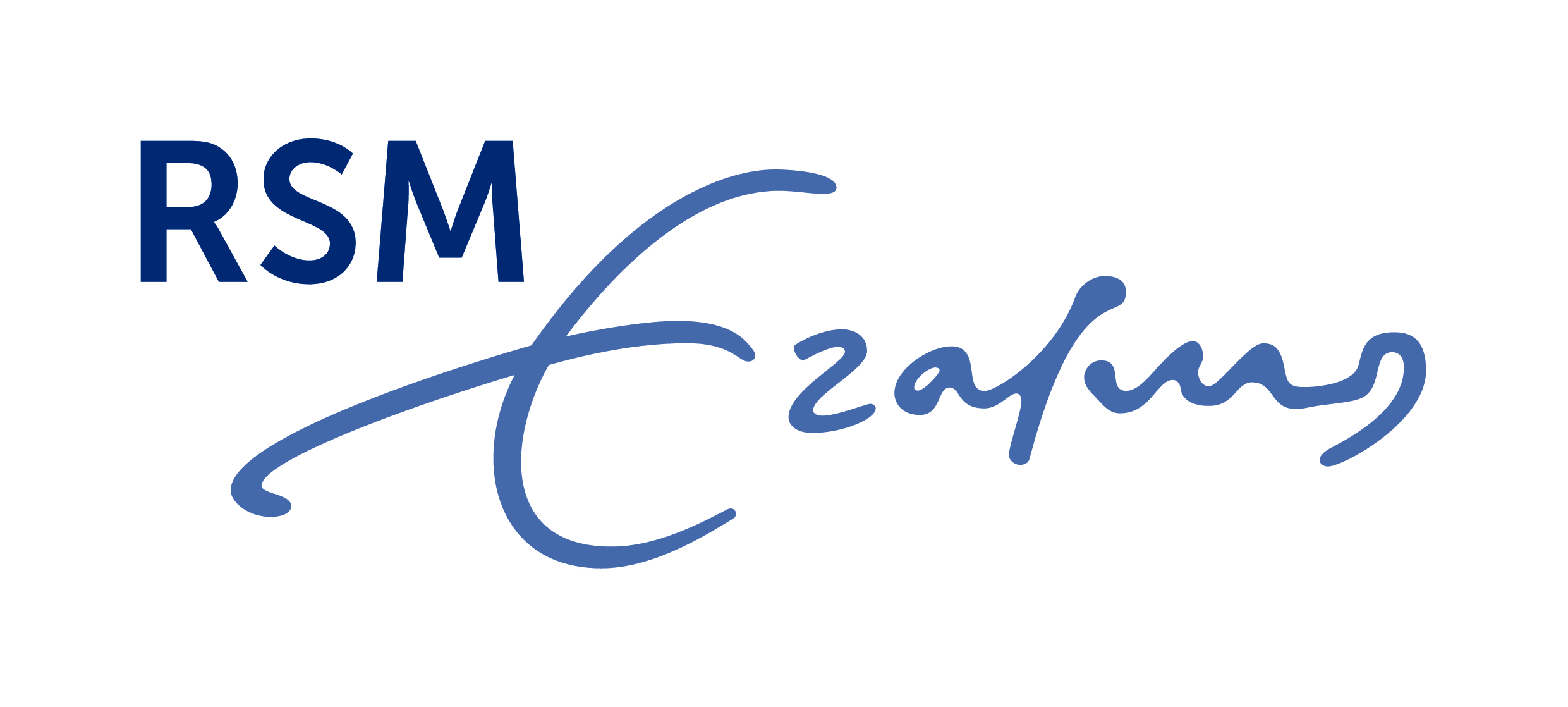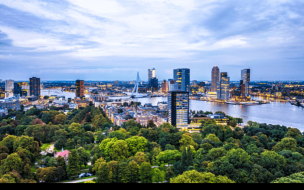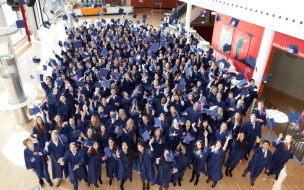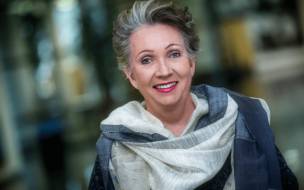Today, the Netherlands is one of the largest exporters in the Eurozone. In 2017, exports of goods and services accounted for over 85% of the Netherlands’ GDP. Meanwhile, the dominance of Dutch multinationals like Philips and Unilever, coupled with startup success stories like WeTransfer, have put the small European country on the global business map.
For Ann van Dam, director of MBA programs at Rotterdam School of Management (RSM), the reason for the country’s success is deeply rooted in the Dutch mentality. “The Dutch have a saying,” she says. “‘Don’t talk; just do it.’ The business ethos and the entire country is built on that.”
RSM is applying the same culture of innovation to its International Full-time MBA program. Students on the RSM MBA can explore entrepreneurship through the Erasmus Center for Entrepreneurship (ECE) at the Rotterdam Science Tower, located at the heart of the Rotterdam Innovation District and home to over 100 startups.
At the ECE, MBA students can take their business ideas through startup boot camps, supported by a community of mentors and fellow entrepreneurs. The ECE’s networking events attract over 20,000 visitors each year. Ann says RSM faculty introduce students with promising startups to potential investors.
Throughout, the flavor is distinctly social. The number of social enterprises in the Netherlands—businesses driven by both profit and social good—is rising, estimated around 4-to-5,000. Social Enterprise NL, a national membership body, was founded in 2012 to connect them and support their growth.
At Venture Café Rotterdam, which hosts meetups for entrepreneurs every Thursday, recent sessions have focused on cleantech, the circular economy, and sustainable leadership. Rotterdam School of Management itself has been ranked among the world’s best business schools for sustainability and MBA students are taken out of class to work with local nonprofits and NGOs.
Going forward, Ann says RSM will add to the MBA’s entrepreneurship elective and develop and innovation and entrepreneurship track. By 2020, innovation will become a core part of the MBA curriculum, connecting students to the host of opportunities in the local area.
I Chose Rotterdam Over Oxford For My MBA—Now I Run My Own Artificial Intelligence Startup
“The Netherlands has always been a frontrunner in terms of startups—and Rotterdam especially,” Ann explains. “It’s a major port and they’ve gone on the warpath here to completely redevelop the city. The environment is very welcoming to new ideas.”
The Dutch government offers a startup visa for non-EU citizens who want to start a business in the country, giving them a year to launch their business with an option to extend their visa for another year. They’ve also set aside over $85 million (€75 million) to support entrepreneurs with better access to funding and mentorship through the Ambitious Entrepreneurship Action Plan.
Typically, 97% of students on the International Full-time MBA at Rotterdam School of Management are international, representing almost 40 different countries—attracted by the Netherlands’ supportive innovation environment whether they intend to develop their own startup or not.
Ksenia Bokareva, who raised more than $500,000 in sales with her Moscow-based travel and events company, came to RSM to explore a career in marketing. She’s leaving her business behind and is looking to stay in the Netherlands after graduation, but she’s seen plenty of her colleagues pursue their own startup projects
“I think this is due to RSM helping individuals to better understand who they are and what they would like to accomplish in life,” she says.
“The Netherlands provides a good platform for entrepreneurs. It’s an inclusive culture where foreigners feel welcome and are supported to make their businesses grow and achieve success.”


